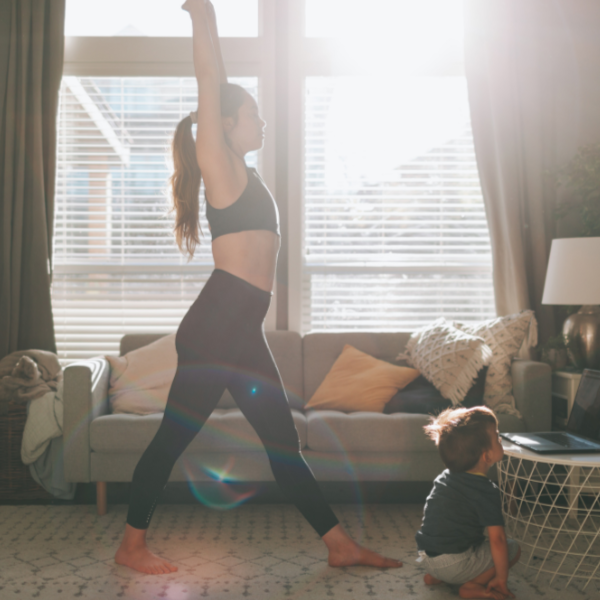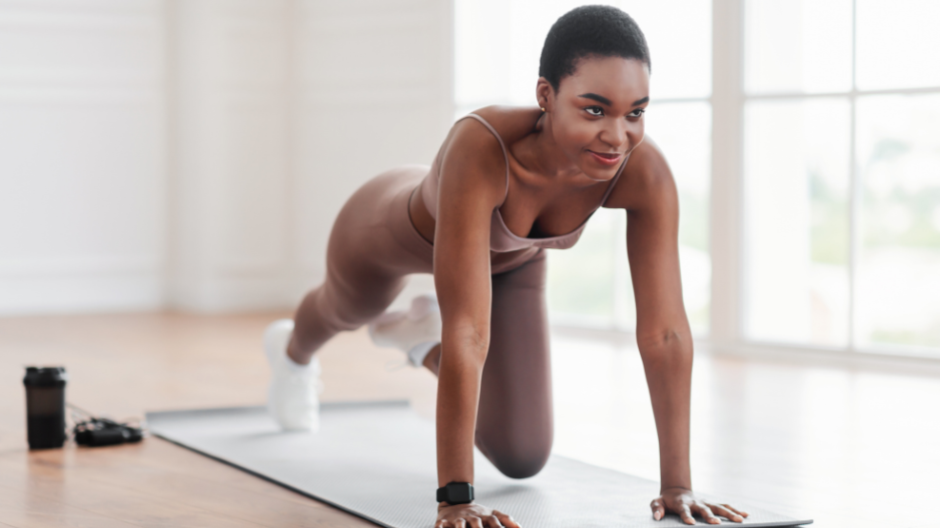Why Exercise Should Be a Top Priority for Mums
Full disclosure: I’ve never been a sporty person. At school, I dreaded physical education because I was always the last one picked when teams were formed. Through my teenage years and into young adulthood, I often told myself I should exercise more; but my motivation was mostly about making my body look “better,” which never really stuck.
Later, I tried to focus on the health benefits instead. They felt like a stronger reason, but because they were a long-term investment without immediate rewards, I still found it hard to stick to my goals.
My relationship with exercise only started to shift a couple of years ago, when I finally realised how much lighter I felt after a good workout, and how that effect rippled into the following days. I had more energy, was more present at home, more patient with the children, and less likely to snap at my partner. Overall, I felt more grounded.
In this blog, I explore some evidence-based benefits of exercise on mental wellbeing, alongside my own personal experiences.
Exercise is a mood booster
Moving your body makes you happier! Or at least, it helps prevent you from feeling miserable.
Research increasingly shows that exercise can be just as effective as antidepressant medication for treating depression and anxiety (Verhoeven et al., 2023). Dance appears to be particularly helpful, though there isn’t yet enough data to draw firm conclusions (Noetel et al., 2024). For now, it’s too early to say which type of exercise is “best,” as all kinds of movement seem to provide benefits.
One fascinating study asked typically active young adults to stop exercising for just one week and limit their daily steps to under 5,000 (Edwards & Loprinzi, 2016). The result? Their mood became significantly more depressed after only seven days without movement.
I’ve experienced this myself. On weeks when I decide I’m “too busy” to work out, I notice I slip more easily into rumination and negative thoughts. Then it becomes a downward spiral, I’m too tired to exercise, which makes me feel even worse. When this happens, I have to remind myself to treat exercise like medicine: I put on my sweatpants and push myself to do a quick 15-minute FitOn kickboxing session (or 25-minute Zumba if I need the extra boost of uplifting music). And without fail, I feel better afterwards! Jumping around helps me break the negative cycle.
If you want to keep a positive spirit: keep moving!
Exercise improves emotional resilience
Have you ever tried to shake off negative feelings? I find it surprisingly effective. Going for a run to let go of anger, dancing to lighten a heavy heart, or practicing a few yoga poses to ease anxiety… it usually helps. Sometimes the workout makes the feeling disappear entirely, and I finish wondering what I was even fussing about. Other times, it clears my head just enough to think more constructively and come up with solutions. And on days when the feeling is particularly heavy, it might return; but exercise still provides temporary relief, even if it’s just releasing some of the tension in my shoulders.
Science backs this up. Research links aerobic exercise with better emotional regulation (Wang et al., 2024). Aerobic activity helps us focus on the positive, and it increases activity in the prefrontal cortex (our “thinking brain”). This part of the brain helps us interpret events in a more balanced way and regulate our behaviour so we can respond appropriately in social situations (even if you’re furious, you don’t want to yell at your boss!).
Of course, fitting exercise into a busy mum’s schedule isn’t always easy. It’s tempting to skip it to “save time”… but how much time do we actually lose by being unfocused, stuck in rumination, arguing with our partner over silly things, or overthinking every decision because we’re paralysed with worry? If you think about the time you gain by being more emotionally regulated, carving out those few minutes for movement suddenly feels a lot more worthwhile.
Exercise powers you up
As a mum, the easiest way for me to find an hour for myself is usually early morning, when the family is still sound asleep. But I love my sleep! For a very long time, I resisted the idea of waking up earlier to exercise. I was already exhausted and didn’t want to sacrifice a few precious minutes of rest.
When I finally gathered the motivation to set the alarm and jump into my gym gear, I realised those early morning workouts actually left me feeling invigorated. And not just right after, but throughout the day. Paradoxically, waking up earlier made me less tired!
Researchers have found the same: regular exercise decreases fatigue while increasing energy and vitality (Wender et al., 2022). So, mama, even if you’re exhausted, consider moving your body! (Side note: exercise does make you sleep better but make sure you finish your workout session at least 2hrs before bedtime to allow your body to calm down).
Wrapping it up
The Australian Government recommends at least 75 minutes of vigorous-intensity exercise per week for adults (e.g. jogging, aerobics, fast cycling, soccer, netball, etc). This is a great guideline to aim for. But let’s be real: squeezing 75 minutes into a busy mum’s schedule isn’t always easy!
Here are two things to keep in mind:
You can break those 75 minutes into smaller blocks, the benefits are the same.
If 75 minutes feels like too much, don’t worry. Any amount of movement helps. Start small, and remember: it doesn’t need to be perfect.
References
Autralian Governement Guidelines on Physical Activity and Exercise https://www.health.gov.au/topics/physical-activity-and-exercise/physical-activity-and-exercise-guidelines-for-all-australians/for-adults-18-to-64-years
Edwards M.K. & Loprinzi P.D. 2016. Effects of a sedentary behavior-inducing randomized controlled intervention on depression and mood profile in active young adults. Mayo Clinic Proceedings. 91(8):984-998. https://doi.org/10.1016/j.mayocp.2016.03.021
Noetel M., Sanders T., Gallardo-Gamez D., Taylor P., del Pozo Cruz B., van den Hoek D. et al. 2024. Effect of exercise for depression: Systematic review and network meta-analysis of randomised controlled trials. BMJ. 384 :e075847 https://doi.org/10.1136/bmj-2023-075847
Verhoeven J.E., Han L.K.M., Lever-van Milligen B.A., et al. Antidepressants or running therapy: Comparing effects on mental and physical health in patients with depression and anxiety disorders. J Affect Disord. 2023;329:19-29. doi:10.1016/j.jad.2023.02.064 https://doi.org/10.1016/j.jad.2023.02.064
Wang X., Liu T., Jin X. & Zhou C. 2024. Aerobic exercise promotes emotion regulation: a narrative review. Exp Brain Res 242, 783–796. https://doi.org/10.1007/s00221-024-06791-1
Wender C.L.A., Manninen M., O'Connor P.J. 2022. The effect of chronic exercise on energy and fatigue states: A systematic review and meta-analysis of randomized trials. Front Psychol. 3;13:907637. https://doi.org/10.3389/fpsyg.2022.907637



